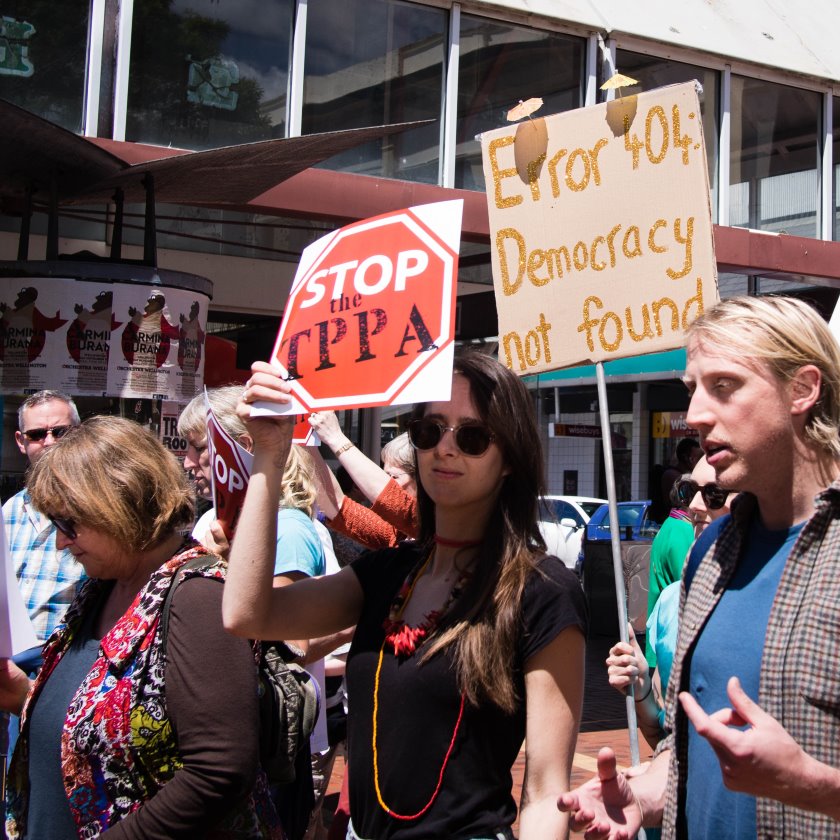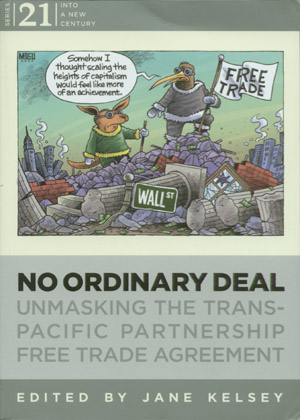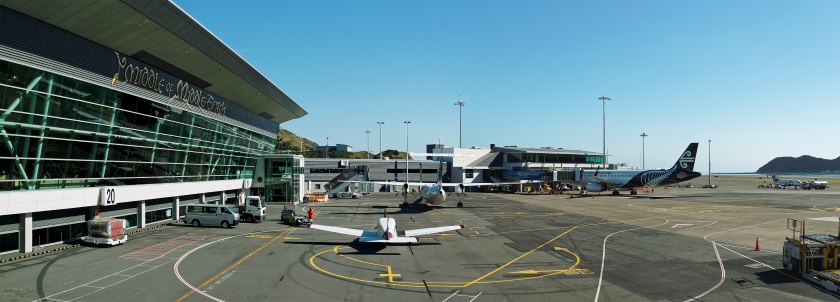
Neil Ballantyne/Wikimedia Commons
How much has TPPA changed? Not a lot, according to this petition. The full content is below, and if you agree, click through to dontdoit.nz and add your signature. Point (e) is the one that most of us understand, and according to the petition, it’s still there.
While all trade agreements have some form of investor–state dispute settlement process, what has leaked out (since the process remains secret) about TPPA, and TPPA-11, is that the process remains unfair. ISDSs have morphed into something where corporations can get far more than a fair go against governments that might, for example, nationalize their assets, which were their original intent, one that I think is fair. But here are some examples of where things can go terribly wrong, and there’s nothing in TPPA-11 that (apparently) prevents these sorts of things happening.
We, the undersigned, express our grave concern that:
(a) The Labour Party, New Zealand First and the Green Party all said in the Select Committee report on the Trans-Pacific Partnership Agreement (TPPA) that they would not support its ratification;(b) The text agreed by eleven countries after the US pulled out, the TPPA-11, remains the same as the original TPPA, with a small number of items in the original text being suspended, not removed;
(c) The government has promised a new inclusive and progressive approach to trade and investment agreements, but there is nothing new and progressive to justify the renaming of the TPPA-11 as the Comprehensive and Progressive Agreement on Trans-Pacific Partnership;
(d) There are many provisions in the TPPA-11 that restrict the regulatory sovereignty of the current and future Parliaments;
(e) The Government has instructed officials not to include investor-state dispute settlement (ISDS) in future agreements, yet the TPPA-11 still contains the core investor protection rules that can be enforced through ISDS;
(f) The secrecy that the governing parties criticised in the original negotiations continues and that the text will apparently not be released until after the agreement is signed;
(g) There has been no analysis of the economic costs and benefits of the TPPA-11, including the impact on employment and income distribution, as the governing parties called for in the select committee report;
(h) There has been no health impact assessment of the revised agreement as called for by the current Government in the select committee report, nor any assessment of environmental impact or constraints on climate action;
(i) The Crown has not discussed ways to improve the Treaty of Waitangi exception and strengthen protections for Māori as the Waitangi Tribunal advised;
(j) Despite these facts, the Government has announced its intention to sign the TPPA-11 on 8 March 2018;
and urge the House to call upon the Government:
(k) not to sign the TPPA or the Comprehensive and Progressive Agreement on Trans-Pacific Partnership;
(l) to conduct a principles-based review of New Zealand’s approach to free trade, investment and economic integration agreements that involves broad-based consultation;
(m) to engage with Māori to reach agreement on effective protection of their rights and interests consistent with te Tiriti o Waitangi and suspend negotiations for similar agreements until that review is concluded;
and further, urge the House to pass new legislation that
(n) establishes the principles and protections identified through the principles-based review under paragraph (l) as the standing general mandate for New Zealand’s future negotiations, including;
i. excluding ISDS from all agreements New Zealand enters into, and renegotiating existing agreements with ISDS;
ii. a requirement for the government to commission and release in advance of signing an agreement independent analyses of the net costs and benefits of any proposed agreement for the economy, including jobs and distribution, and of the impact on health, other human rights, the environment and the ability to take climate action;
iii. a legislative requirement to refer the agreement to the Waitangi Tribunal for review prior to any decision to sign the treaty; and
(o) makes the signing of any agreement conditional on a majority vote of the Parliament following the tabling in the House of the reports referred to in paragraph (n) (ii) and (iii);
and for the House to amend its Standing Orders to
(p) establish a specialist parliamentary select committee on treaties with membership that has the necessary expertise to scrutinise free trade, investment and economic integration agreements;
(q) require the tabling of the government’s full mandate for any negotiation prior to the commencement of negotiations, and any amendment to that mandate, as well as periodic reports to the standing committee on treaties on compliance with that mandate;
(r) require the tabling of any final text of any free trade, investment and economic integration agreement at least 90 days prior to it being signed;
(s) require the standing committee on treaties call for and hear submissions on the mandate, the periodic reports, and pre-signing version of the text and the final text and report on those hearings to Parliament;
(t) require a two-third majority support for the adoption of any free trade, investment or economic integration agreement that constrains the sovereignty of future Parliaments that is binding and enforceable through external dispute settlement processes.
Given New Zealand First’s vehement opposition to it while outside of government, it’s hard to believe that the minor changes would have satisfied the party so easily.
If you have the same concerns as the petition writers, and believe our government should do (k) through (t), then the petition’s at dontdoit.nz.







One thought on “TPPA-11: same thing, different face”